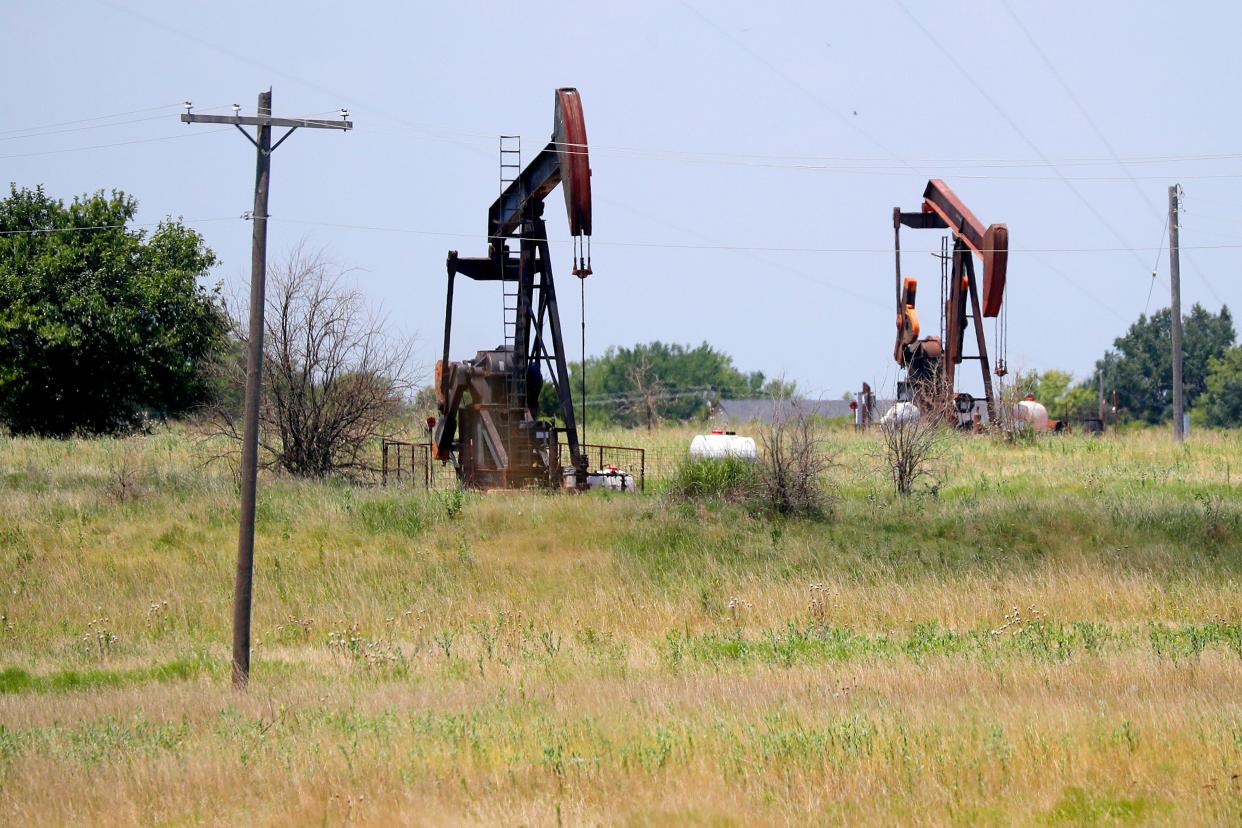UCO Study: Oklahoma cities and towns paid millions extra because of state's anti-ESG law

Oklahoma municipalities were forced to pay more than $180 million in expenses because of a state law written to protect the oil and gas industry, a new study shows.
Commissioned by the Oklahoma Rural Association, the study from the University of Central Oklahoma “showcases the detrimental impact of the Energy Discrimination Elimination Act on Oklahoma communities and taxpayers,” the association said.
"It is clear that the EDEA has caused an unnecessary increase in municipal borrowing rates, increasing costs, harming taxpayers, and resulting in municipalities paying more for less or canceling projects altogether. These unintended consequences are causing significant harm to Oklahoma communities and our economy," study author Travis Roach said.
Roach, an associate professor and chair of the Department of Economics at UCO and founder of the Central Policy Institute, said the law, which prevents the state from doing business with companies that have environmental, social and governance policies, has increased borrowing costs for municipalities by about 16% compared to states that don’t have the legislation.
He said the study also showed that the measure caused increased borrowing costs, higher taxes, reduced expenditures in other areas and the “delay or complete abandonment of projects intended to improve infrastructure and quality of life.”
Rural association President Monica Collison said the impact of the Energy Discrimination Elimination Act on Oklahoma taxpayers and communities, including those in rural and underserved areas, was completely avoidable and, as the research shows, a direct, negative result of these failed policies.
“Any tax dollar unnecessarily spent is wasteful — especially to the tune of more than $185 million. Oklahomans deserve better, and we encourage our lawmakers to right this wrong,” Collison said in a media statement about the study.
Oklahoma’s law, which passed the Legislature in 2022, was the result of a push by the State Financial Officers Foundation, a nonprofit based in Kansas that promotes anti-ESG legislation. ESG stands for "environmental, social, governance," a framework used to assess an organization's business practices on various sustainability and ethical issues.
For several years, Republicans on the state and national level have increased their efforts against ESG policies, which they say is an attempt to push a climate change agenda at the expense of the oil and gas industry. At least 20 states have adopted some type of anti-ESG legislation.
In compliance with the Energy Discrimination Elimination Act, state officials are required to maintain a list of financial institutions they deem "boycotting" the oil and gas industry. By limiting competition and tightening the competitive bond market, local governments are seeing hikes in interest rates, taxes and an inability to complete projects.
State Treasurer Todd Russ told The Oklahoman last year that “the spirit and intention of the law is to protect Oklahomans and the economic base of the state.” Russ said his office found that Wells Fargo & Co., BlackRock Inc., JPMorgan Chase & Co., Bank of America, State Street Corp. and Climate First Bank had boycotted the oil and gas industry.
However, after Russ made the announcement, the managing director of BlackRock, the asset management company, wrote a letter to Russ, denying the claim. BlackRock said it did not boycott oil and gas companies but, in fact, invests in them.
In that letter Mark McCombe, BlackRock's senior managing director and vice chairman, wrote the company has invested more than $15 billion in Oklahoma public energy companies and 90 percent of that investment is "traditional energies like oil and gas."
"We have also made investments on behalf of our clients in private energy companies globally and in Oklahoma, including an investment in Glass Mountain, the largest private crude oil pipeline system in the Anadarko Basin," McCombe wrote. "We invested $600 million in the 280-mile Oklahoma-based pipeline system in 2017 and subsequently invested another $600 million to expand it to 710 miles."
Municipalities aren’t the only ones affected by the measure.
Last year, former Oklahoma Public Employees Association President Don Keenan filed a lawsuit in Oklahoma County District Court. Keenan’s lawsuit seeks to stop the state’s anti-ESG law. Keenan asked the court to find Oklahoma's Energy Discrimination Elimination Act unconstitutional.
Since its adoption in Oklahoma, the Energy Discrimination Elimination Act has drawn pushback from pension holders, financial institutions and a handful of Republican lawmakers, who said the law needs to be changed. Records show that BlackRock manages about $11 billion of state pension funds
This article originally appeared on Oklahoman: Oklahoma's anti-ESG law forcing cities and towns in OK to pay more
